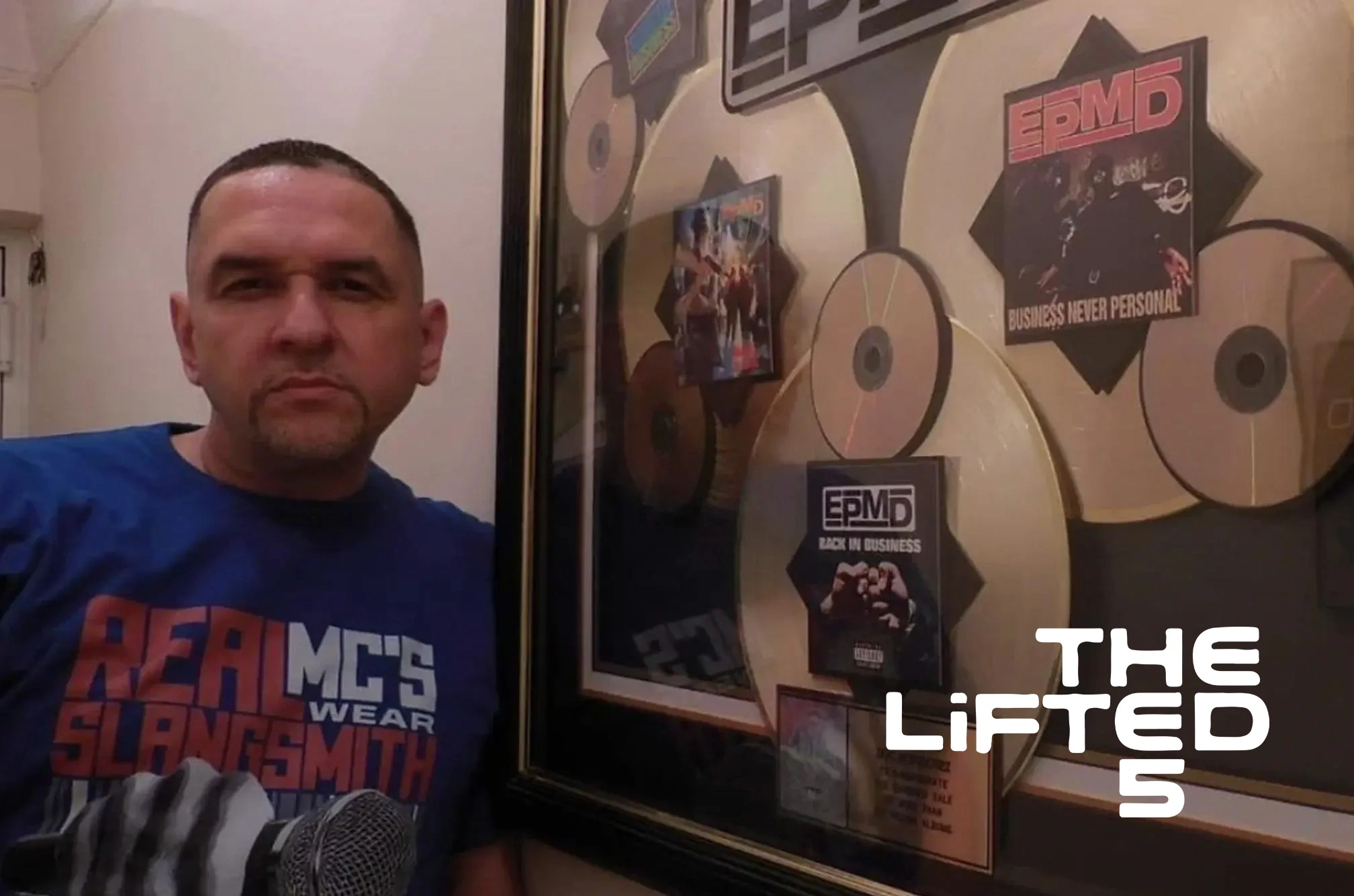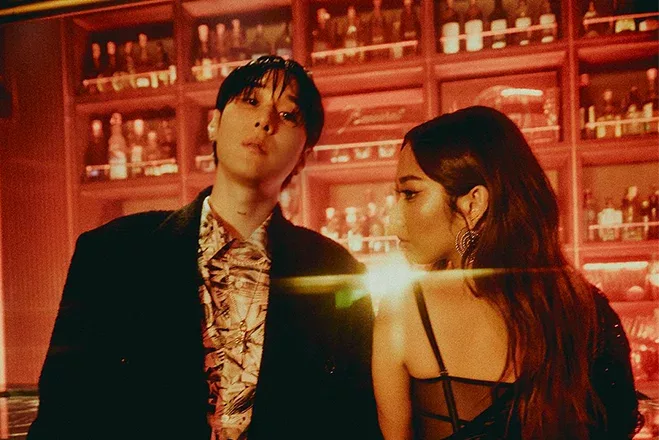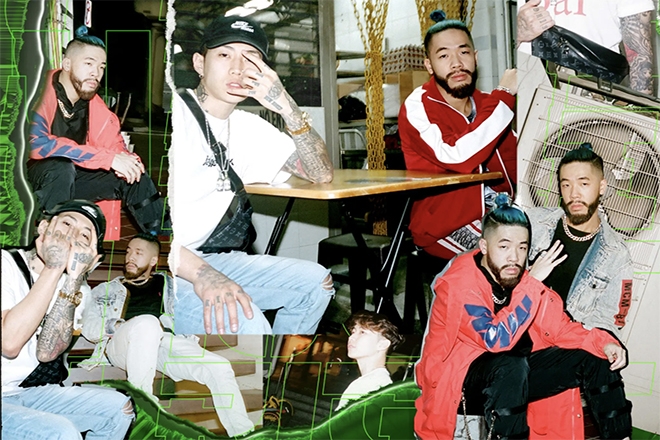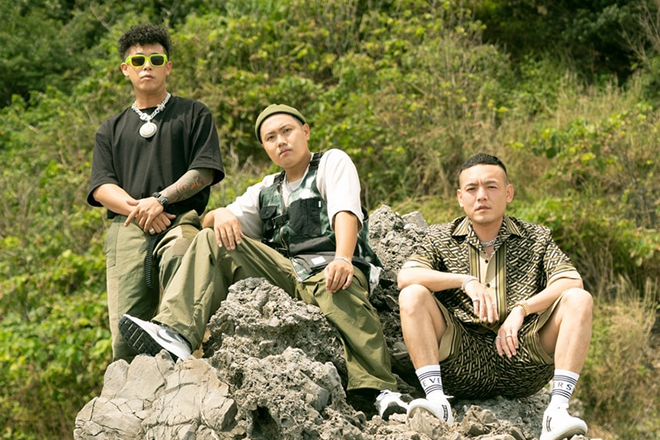Interview
The LiFTED 5 with Dee Jay Doc
Hip Hop turns 50 interview with one of the legendary producers, engineers, & mixers of the Golden Era
Ivan Rodriguez AKA Dee Jay Doc is a legendary Hip Hop producer that you may never have heard of. But if you’re a classic Hip Hop head you’ll surely remember KRS One shouting him out on ‘Still # 1,' “Dee Jay Doc…ya know he’s down with us.’
Doc was instrumental in so many early Rap records that came out between the mid-80s to the 2000s that his discography reads like a who’s who of Hip Hop classics. As an engineer, mixer, and producer he was one of the true triple threats of the Golden Era. He engineered, remixed, or produced MC Lyte, Boogie Down Productions, Eric B & Rakim, EPMD, LL Cool J, Redman, K-Solo, Flava Unit, The Fugees, Biz Markie, Kid Capri, Grand Daddy I.U., and that’s just to name a few. The list goes on and on.
Doc is a humble cat who was always about the music and about the business. He added a funky flair to so many records, that he should have gotten a writing and production credit, too. LiFTED was excited to catch up with this producer’s producer, especially as we are checking in with the pioneers of Hip Hop culture who paved the way for today’s multi-billion-dollar industry. It’s Hip Hop’s 50th anniversary and Dee Jay Doc is one of the all-time greats who deserves his flowers.
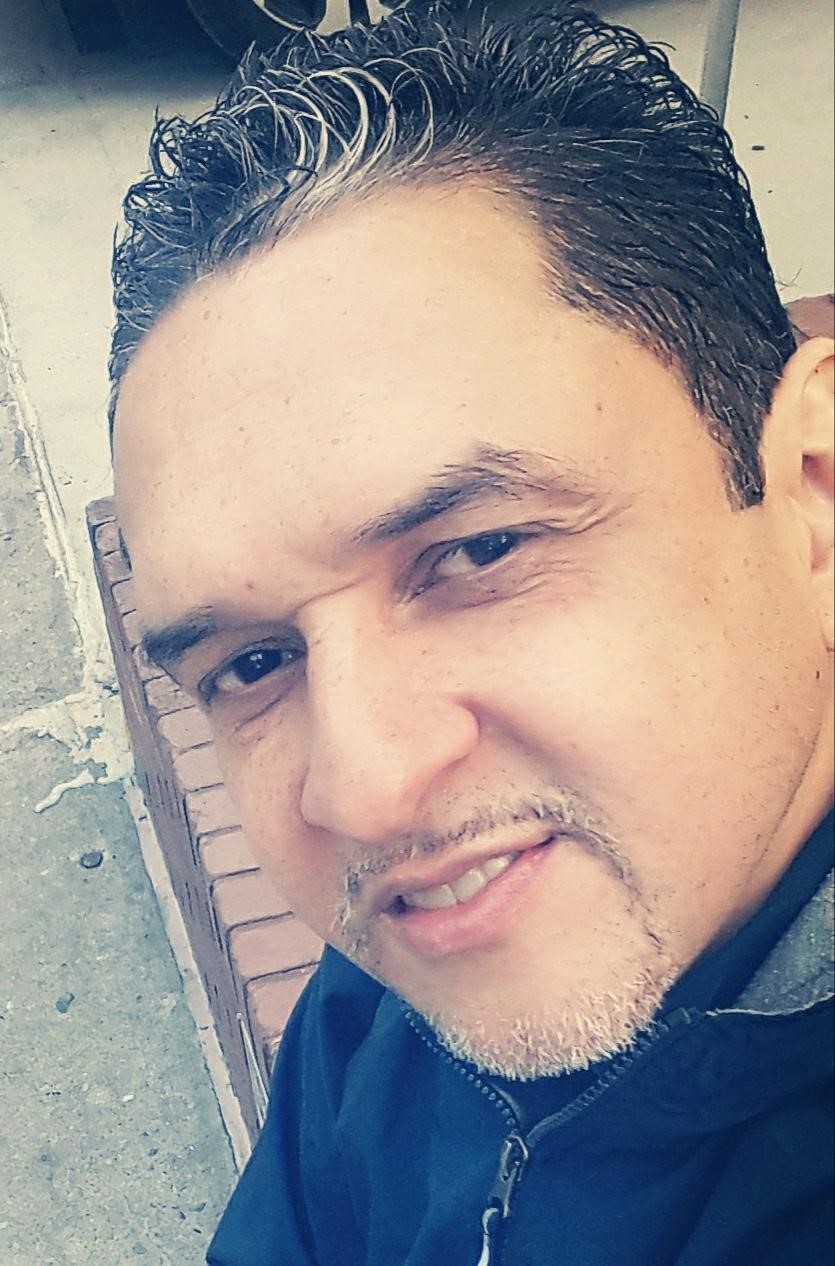
What were you doing in 1973 when Kool Herc was throwing his seminal parties in the Bronx?
I was a young fella growing up in Hell's Kitchen, N.Y. listening to AM/FM radio on my mono boom box or classic Soul 45’s and Underground ‘Disco Music’ [there were no Dance 12”s at the time] on my papi's ‘radiola.’ We all enjoyed playing street sports [skellies, stoop ball, ringolario, kick the can, stickball, tag, hide and seek] as well as basketball, handball, and softball. No football because I was too skinny. Around that time, I also started tinkering with whatever electronic equipment I could get my hands on. Who knew what that fascination with gear would evolve into years later? And speaking of Fascination…an interesting and little-known fact about me is that one of my very early credits was not a Hip Hop record, but rather a Dance single on Vinylmania Records entitled ‘Why You Wanna Go’ by Fascination.
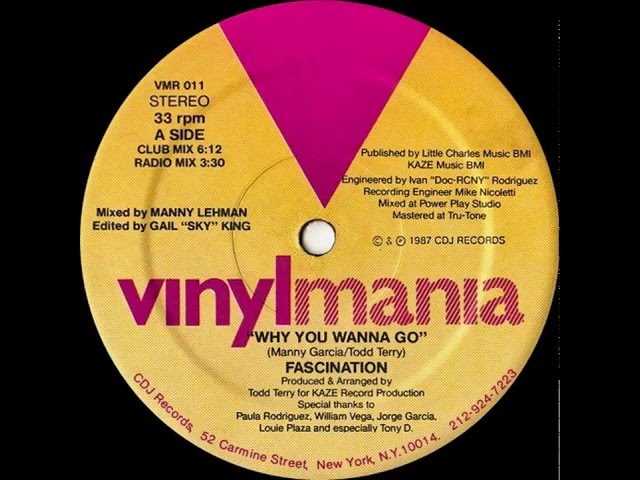
What was it like working at Power Play Studios in Queens during the early days of Hip Hop? How did that studio become so popular with rappers?
Working early on in Power Play Studios was very exciting but also extremely challenging due to the limitations and lack of technology we faced, especially with early sampling. When I arrived at Power Play around ‘85 or ‘86 they had one location with two studios. The A Room, with a 24trk/bus MCI console, and the very limited B Room, with a Trident 16 bus/24trk console. Both rooms had 2" tape machines but recording basics in the B room was challenging because you couldn't track more than 16 tracks at a time.
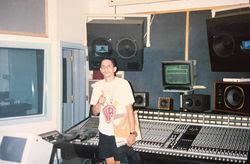
The B Room eventually acquired an SSL console once the studio started to be booked regularly. It required using FSK [Freq Shift Keying] sync to ‘lock up’ the sound devices being used and recording additional passes to track additional sounds. Unlike SMPTE, FSK required the sync to start at the very top of the song to achieve synchronization, regardless of where you needed to punch in, which was a very time-consuming process because we were constantly rewinding. SMPTE permits synchronization at any point of the song. We didn't start using SMPTE until the studio purchased a Roland SBX-80.
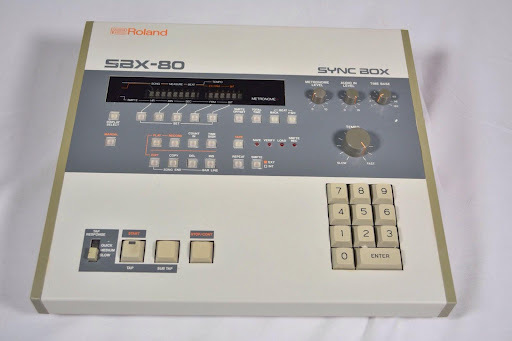
Those limitations, however, also put us in a position where we had to innovate in order to compete with the much larger studios throughout the city, and we quickly became proficient at making Hip Hop recordings. When I arrived at Power Play, Patrick Adams and Elai Tubo had already established a Hip Hop clientele, but I feel that I took it in a new direction, with a totally new and more defined, deeper, and powerful sound. This created a huge buzz in the music industry as well as the Hip Hop community, and Power Play suddenly started getting calls for studio bookings and programming services, but even more so they wanted to book Ivan ‘Doc’ Rodriguez for their sessions. There were times when I was engineering three LPs in three separate rooms simultaneously.
My earliest two album projects are still two of the best LPs in Hip Hop history - Boogie Down Production’s Criminal Minded and Eric B & Rakim’s Paid In Full. Those albums were clearly a blessing for me and for my career. As I continued to work on Hip Hop projects, I refined my skill set and quickly realized that I truly enjoyed what I was doing and was blessed with the understanding of how to translate the client's musical vision onto 2" master tape. I was always obsessed with timing [I always wanted to be a drummer] and therefore the timing on any project that bears my name [especially if I programmed the music] is flawless. If I also mixed it then that would be the cherry on top - the audio mix was open and well-defined, with crystal clear vocals and the bass clear and Ridiculous! [“Ridiculous Bass, Aggravating Treble” - KRS One]
Since then I have recorded, mixed, and produced hundreds of projects which I am humbled to say have sold hundreds of millions of records, tapes, CDs, and streams worldwide. God Is Great!
I can finish this question with this - by the time I was midway through my career at Power Play, we had two buildings with three rooms, 1 MCI console, and 2 SSL consoles.
Tell us about producing for Boogie Down Productions. On Criminal Minded, DJ Scott La Rock was still leading the group. By the time you made By Any Means Necessary, he had been killed and you ended up as the tour DJ. Those must have been crazy times.
When B-Boy Records arrived at Power Play, they had several groups: BDP, JVC Force, and a few others. I would ask everyone to stay in the waiting room, as the B room was too small for a large crowd. We started with a few artists [KRS One, Scott La Rock, Ms. Melodie, and D-Nice] being in the room. There was already a 2" tape given to me that had audio recorded. As we went through the project that I believe was mostly produced by Ced Gee of the Ultra-Magnetic MCs, I started to make changes in some individual drum sounds and some samples as well as some of the loops sampled. I tightened up the timing as best I could throughout the album and I also added some sounds and rhythms of my own. Looking back all these years later I realize that I should have requested ‘Additional production and programming by’ credits but as fate would have it the LP does not even list me as the chief engineer [something I would quickly learn about the industry and struggle with.]
Scott was a pleasure to work with as well, and BDP became family to me. His murder was devastating not only to BDP but also to the staff at Power Play Studios. Really terrible, a tragedy.
I DJ'ed for Kris and BDP on records, and on the road after the terrible loss of Scott and only relinquished that duty when Kris mentioned that D-Nice wanted to DJ instead of rhyme. There was no problem on my part as I was extremely busy with Biz Markie and EPMD. I enjoyed my time working with BDP right up to the making of Ghetto Music. Fun fact - while working on Criminal Minded, I was asked by Tony Arfi to also work on a new artist that was in the adjacent studio by the name of Rakim.
On the LP, By All Means Necessary, I programmed every track and played keyboards and [while only listed as Engineer] I co-produced the entire LP and produced two tracks [‘Ya Slipping’ and ‘Nervous’]. I would also go on to produce the Spanish Remix to the 12" hit ‘I'm Still #1 - Numero Uno Remix.’
You worked with EPMD on all four of their classic albums. That was the era when rappers like Rakim started rhyming conversationally and EPMD had that style, too. It was a big departure from the loud boasting style. What was that like?
I did work on ‘You Gots To Chill’ as a special favor to Russell Simmons, who called me to inform me that their initial mix was distorting when EMPD would perform it on the road. It was my weekend with my daughter Crystal, so I took her with me to the C room in Power Play and mixed the 12" all over again, hence my credit on the first EPMD album. I did not work on any other tracks on Strictly Business.
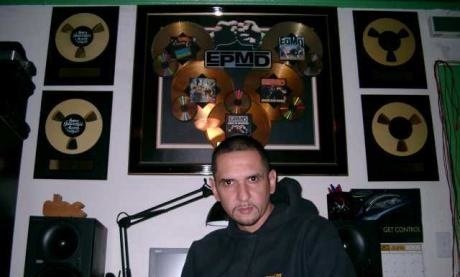
I did work on the following four LPs, so I was associated with a total of five albums with EPMD, which I consider to be the greatest true Hip Hop duo in music history. It was an incredible experience and an honor. While I was instrumental to their ‘Sound’ and provided additional support to the LPs, they handled the production of their material very, very well. Amongst their incredible catalog I am proudest of the single, ‘So Wat Cha Sayin,’ a track that decades later can still take subwoofer drivers off of their hinges. That is one of the greatest 12" Hip Hop singles ever! While working with the Hit Squad I also worked with others from their camp, like Redman, K-Solo, Gloria G, Keith Murray, plus the tracks with Redman and Method Man.
Growing up Puerto Rican in Hell’s Kitchen you were exposed to so much different music, do you feel like you brought that melting pot mentality with you into the studio, especially when a track needed that special sauce?
Absolutely! If you pay close attention to detail in my projects you can tell that it's my project due to the Recipe, the Ingredients, the Sazon, the Adobo, and overall Flavor of #AnothaDeeJayDocJoint. Tasty with a hell of a kick to it. Listen carefully and you will hear elements of Soul, Disco, and Salsa hiding just behind the mix but adding enough flavor to make a difference. And when it comes to stereo imaging, it's right up there with my timing obsession. For me, elements MUST make you feel, think, and experience what that sound, voice, sample, or instrument is doing.

